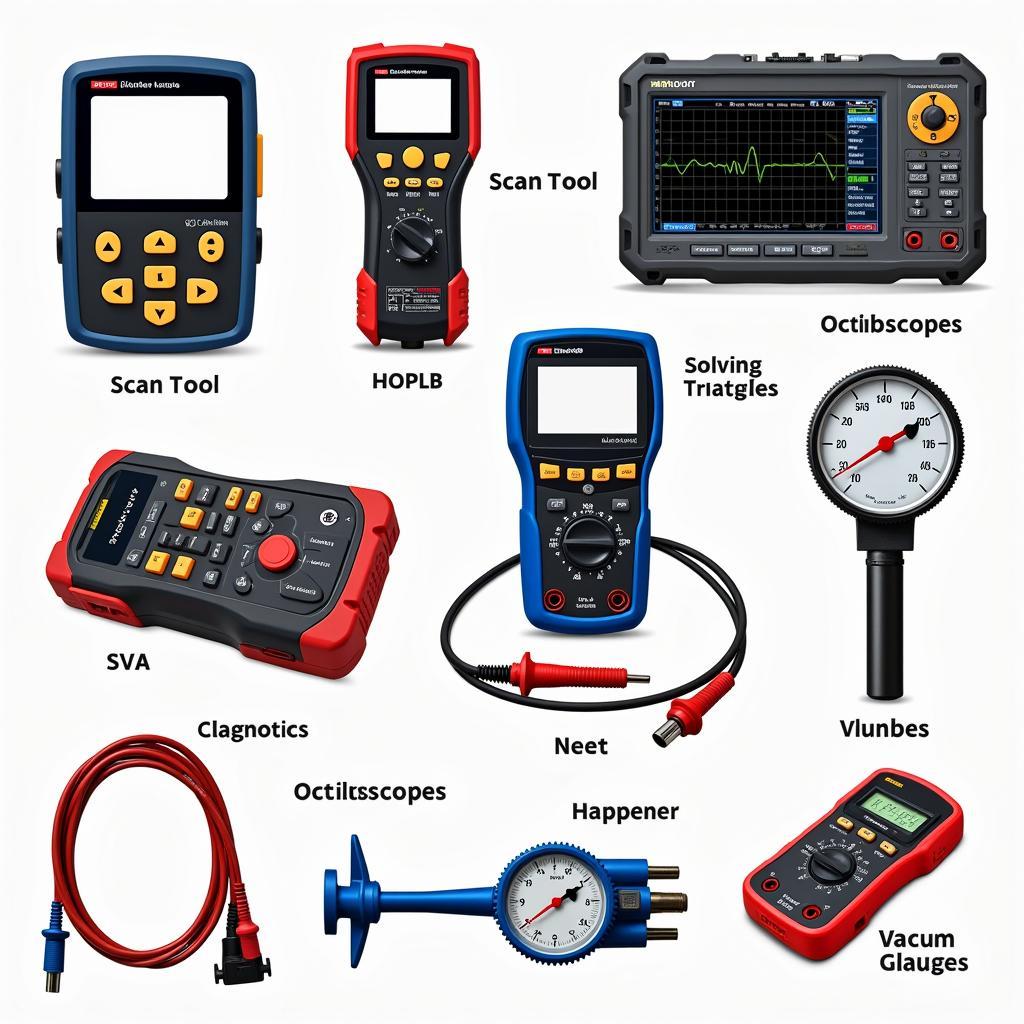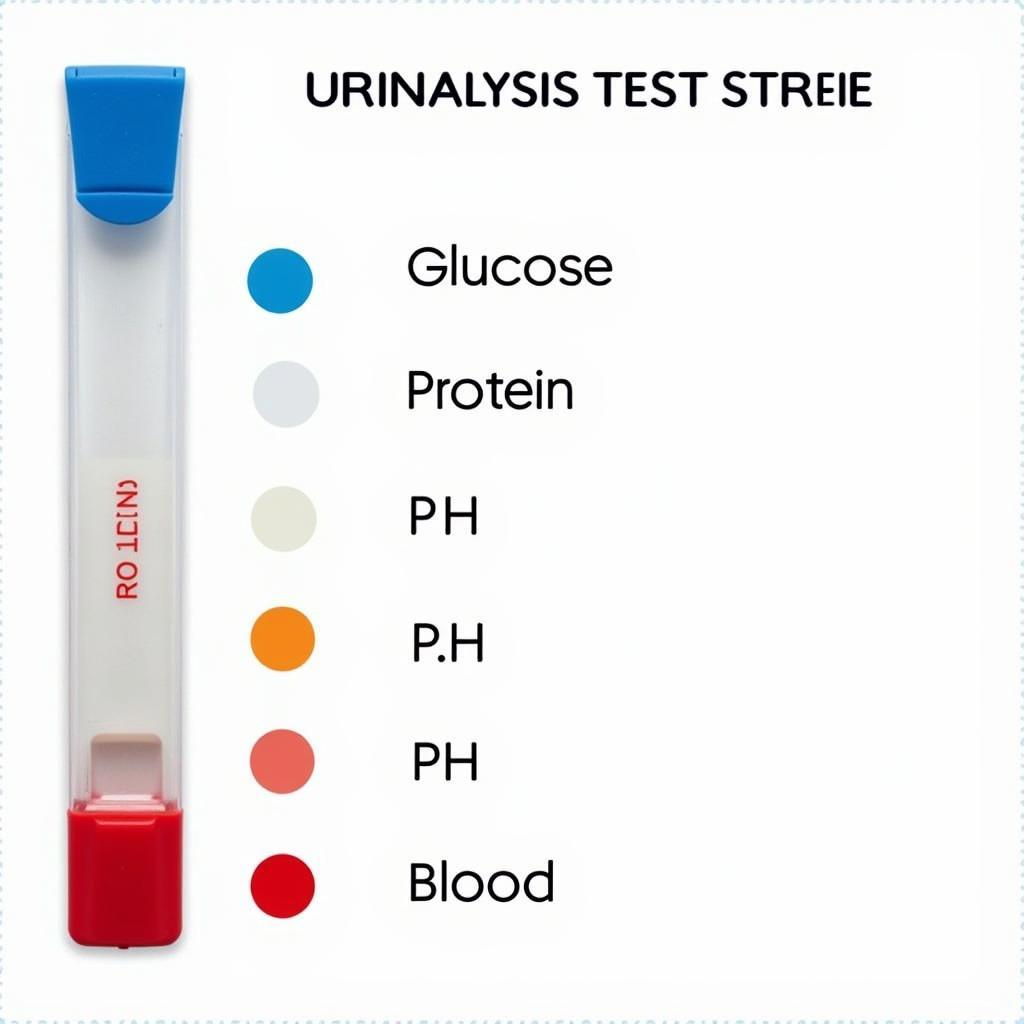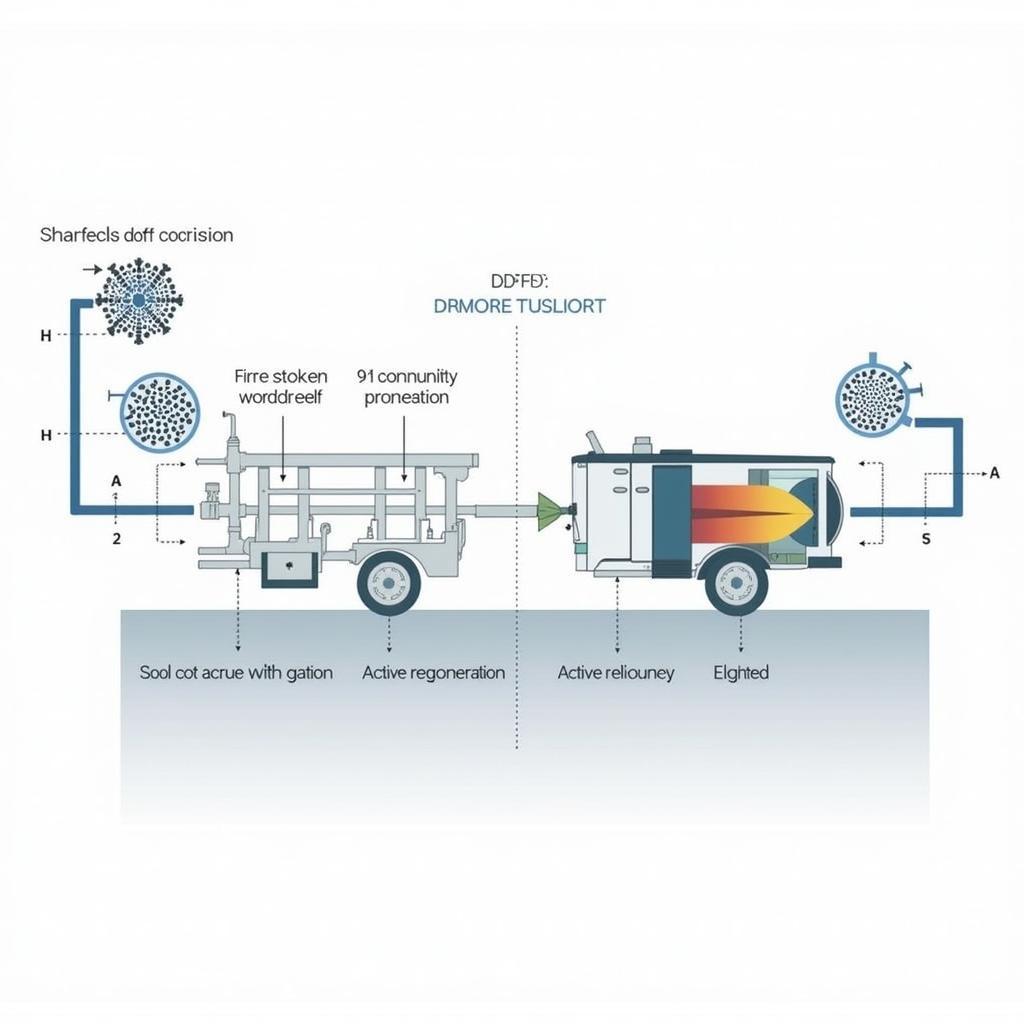The world of automotive repair has evolved drastically. Gone are the days of relying solely on mechanical know-how and a trusty wrench. Today’s vehicles are complex machines, intricate networks of mechanical parts and electronic systems. Diagnosing and fixing issues requires specialized knowledge and, crucially, Automotive Diagnostic Service Tools. These tools act as the bridge between you and your car’s computer, translating complex codes and data into actionable insights.
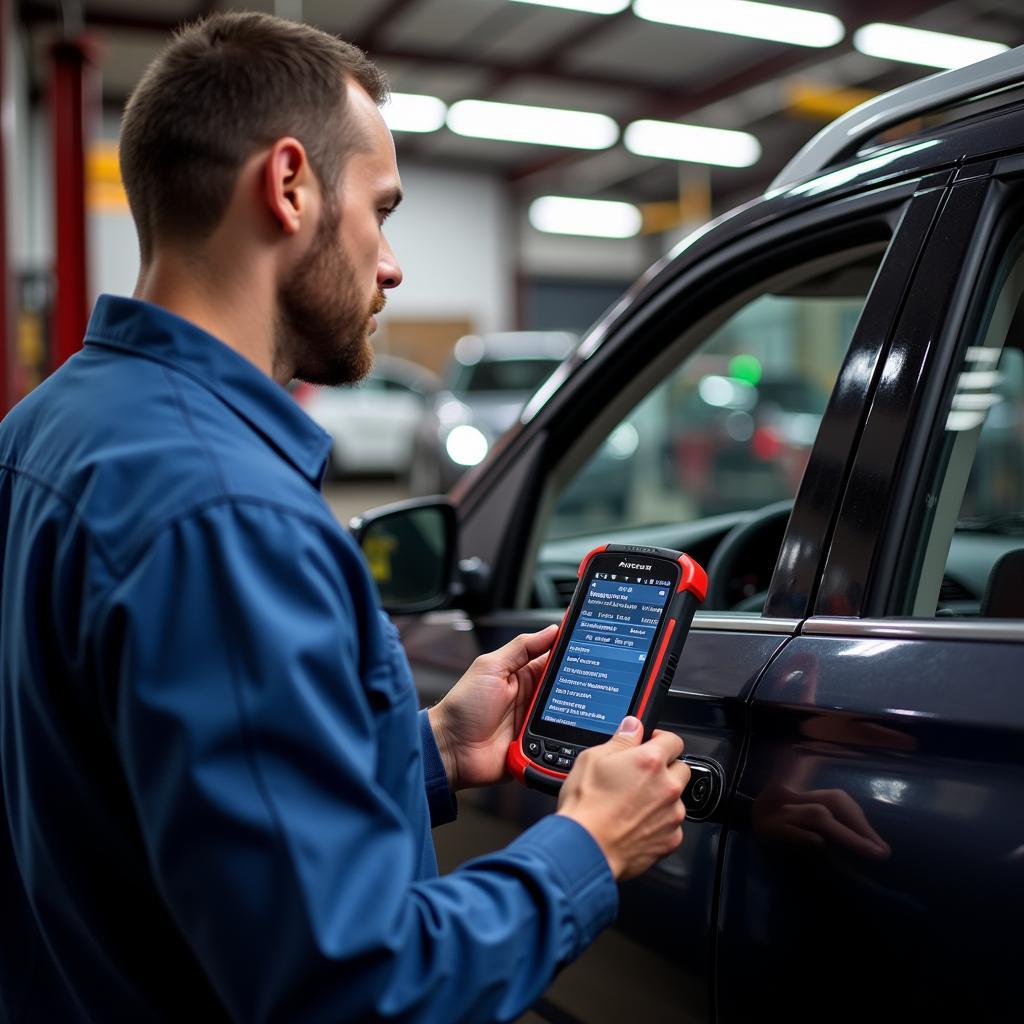 Mechanic using a modern car diagnostic tool
Mechanic using a modern car diagnostic tool
Why are Automotive Diagnostic Service Tools Essential?
Imagine this: your check engine light flashes ominously. In the past, this could have meant a trip to the mechanic and a hefty bill just to figure out the problem. With a diagnostic tool, you can potentially pinpoint the issue yourself. These tools provide a window into your car’s computer, reading the Diagnostic Trouble Codes (DTCs) that are triggered when something goes wrong. These codes act as a roadmap, guiding you towards the root of the problem.
But the utility of automotive diagnostic tools extends far beyond just reading codes. Here are some key functionalities:
- Live Data Monitoring: Observe your engine’s performance in real-time, tracking parameters like RPM, coolant temperature, and oxygen sensor readings.
- Component Activation: Test individual components like fuel injectors, solenoids, or even the ABS system, ensuring they function correctly.
- ECU Programming: In some cases, these tools allow for software updates and reprogramming of the vehicle’s Electronic Control Unit (ECU).
Choosing the Right Tool: Navigating the Options
The market for automotive diagnostic service tools can be overwhelming, ranging from basic code readers to professional-grade systems. Choosing the right one depends on your needs and technical expertise.
- Basic Code Readers: Affordable and user-friendly, they retrieve and display DTCs. Ideal for DIY enthusiasts looking to understand basic car problems.
- Mid-Range Scan Tools: Offer more advanced features like live data streaming, some component testing, and even ABS system diagnostics. Suitable for experienced DIYers or small workshops.
- Professional-Grade Diagnostic Systems: Comprehensive tools with extensive diagnostic capabilities, ECU programming, and advanced functionalities like oscilloscope functions. Designed for professional mechanics and dealerships.
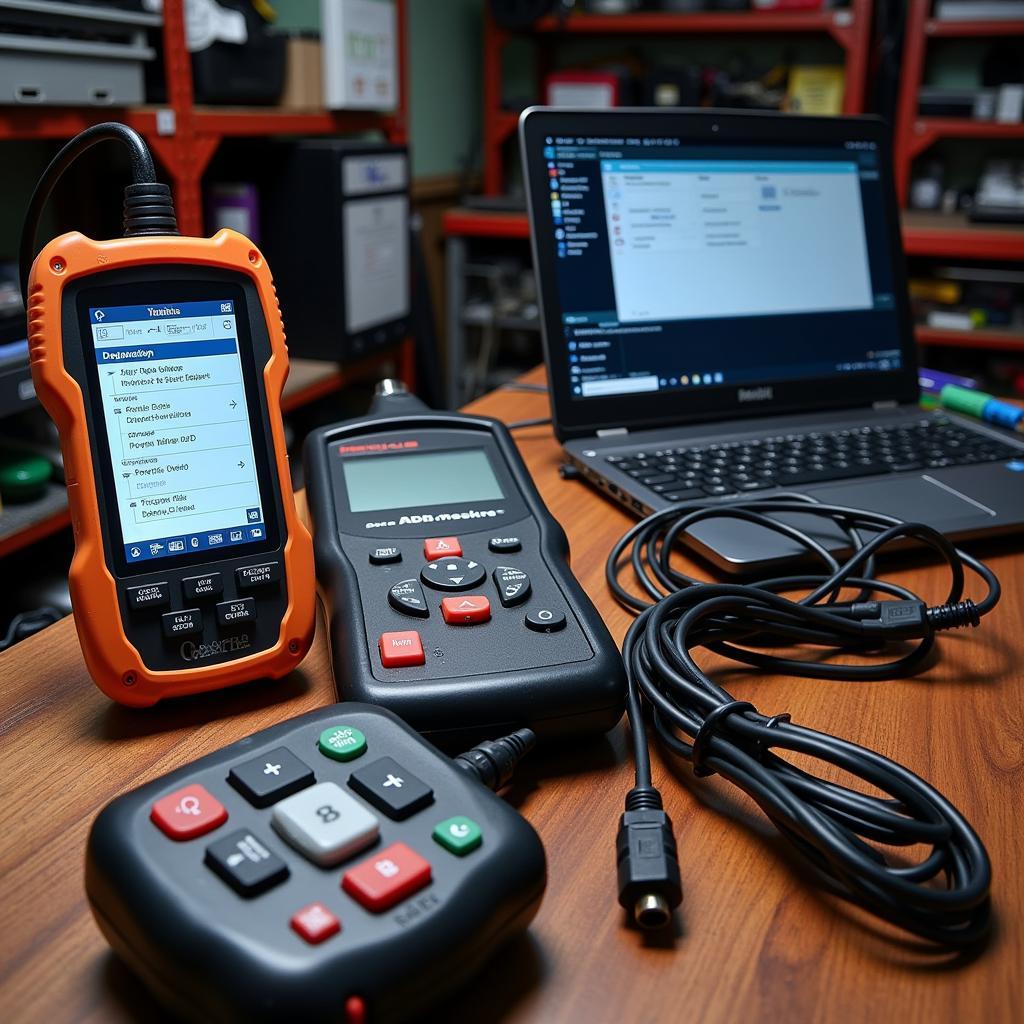 Variety of automotive diagnostic tools displayed on a workbench
Variety of automotive diagnostic tools displayed on a workbench
When selecting a tool, consider factors like vehicle compatibility, software updates, ease of use, and the level of technical support provided by the manufacturer.
Beyond Diagnostics: Empowering Informed Decisions
Automotive diagnostic service tools empower car owners and mechanics alike. For car owners, these tools provide:
- Early Problem Detection: Identify potential issues early on, preventing minor problems from escalating into major repairs.
- Cost Savings: Diagnose problems yourself, potentially saving on expensive diagnostic fees at a mechanic.
- Increased Knowledge: Gain a deeper understanding of your car’s inner workings and how different systems interact.
For mechanics, these tools are indispensable for efficient and accurate repairs:
- Faster Diagnosis: Quickly pinpoint issues, reducing diagnostic time and increasing workshop productivity.
- Enhanced Accuracy: Access comprehensive data and analysis, leading to more accurate repairs and fewer comebacks.
- Expanded Service Offerings: Offer specialized services like ECU programming and advanced diagnostics, attracting a wider customer base.
The Future of Car Repair: A Digital Landscape
As vehicles become increasingly sophisticated, so too will the automotive diagnostic service tools needed to service them. We can expect to see:
- Wireless Connectivity: Tools that connect wirelessly to vehicles, enabling remote diagnostics and over-the-air software updates.
- Cloud-Based Data: Systems that leverage cloud computing to provide access to vast databases of vehicle information, repair histories, and technical documentation.
- Artificial Intelligence: AI-powered diagnostics that analyze data, learn from patterns, and provide predictive maintenance suggestions.
The automotive industry is on the cusp of a digital revolution. Automotive diagnostic service tools are not just tools of the trade, but gateways to a future where car repair is smarter, faster, and more connected than ever before.
Conclusion
Understanding and utilizing automotive diagnostic service tools is no longer optional, but essential in today’s automotive landscape. These tools empower car owners and mechanics to diagnose problems accurately, make informed repair decisions, and stay ahead of the curve in an ever-evolving industry.
Do you want to learn more about automotive diagnostic service tools or need expert assistance with your car’s diagnostics? Contact ScanToolUS today at +1 (641) 206-8880 or visit our office at 1615 S Laramie Ave, Cicero, IL 60804, USA. We are here to help you navigate the world of automotive diagnostics and keep your vehicle running smoothly.

